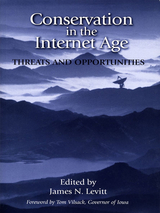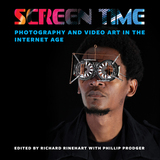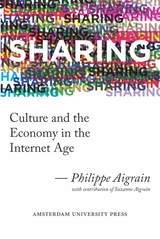
Since the earliest days of our nation, new communications and transportation networks have enabled vast changes in how and where Americans live and work. Transcontinental railroads and telegraphs helped to open the West; mass media and interstate highways paved the way for suburban migration. In our own day, the internet and advanced logistics networks are enabling new changes on the landscape, with both positive and negative impacts on our efforts to conserve land and biodiversity. Emerging technologies have led to tremendous innovations in conservation science and resource management as well as education and advocacy efforts. At the same time, new networks have been powerful enablers of decentralization, facilitating sprawling development into previously undesirable or inaccessible areas.
Conservation in the Internet Age offers an innovative, cross-disciplinary perspective on critical changes on the land and in the field of conservation. The book:
- provides a general overview of the impact of new technologies and networks
- explores the potentially disruptive impacts of the new networks on open space and biodiversity
- presents case studies of innovative ways that conservation organizations are using the new networks to pursue their missions
- considers how rapid change in the Internet Age offers the potential for landmark conservation initiatives

More and more people rely on information from television and the Internet to make important decisions. Processing Politics offers a sound, well-researched defense of these remarkably versatile media, and challenges us to make them work for us in our democracy.

Published by Bucknell University Press for the Samek Art Museum.
Distributed worldwide by Rutgers University Press.

An in-depth exploration of digital culture and its dissemination, Sharing offers a counterpoint to the dominant view that file sharing is piracy. Instead, Philippe Aigrain looks at the benefits of file sharing, which allows unknown writers and artists to be appreciated more easily. Concentrating not only on the cultural enrichment caused by widely shared digital media, Sharing also discusses new financing models that would allow works to be shared freely by individuals without aim at profit. Aigrain carefully balances the needs to support and reward creative activity with a suitable respect for the cultural common good and proposes a new interpretation of the digital landscape.

READERS
Browse our collection.
PUBLISHERS
See BiblioVault's publisher services.
STUDENT SERVICES
Files for college accessibility offices.
UChicago Accessibility Resources
home | accessibility | search | about | contact us
BiblioVault ® 2001 - 2024
The University of Chicago Press









